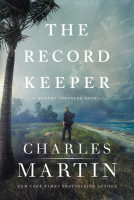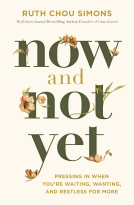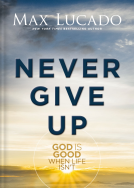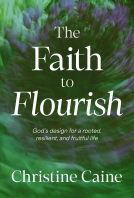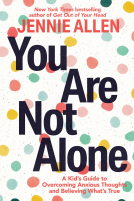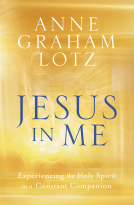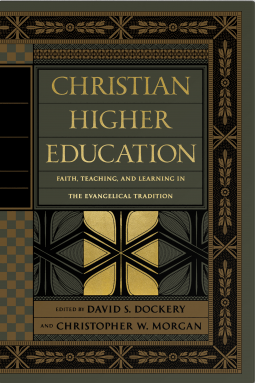
Christian Higher Education
Faith, Teaching, and Learning in the Evangelical Tradition
by David S. Dockery and Christopher W. Morgan, eds.
This title was previously available on NetGalley and is now archived.
Send NetGalley books directly to your Kindle or Kindle app
1
To read on a Kindle or Kindle app, please add kindle@netgalley.com as an approved email address to receive files in your Amazon account. Click here for step-by-step instructions.
2
Also find your Kindle email address within your Amazon account, and enter it here.
Pub Date Nov 30 2018 | Archive Date Nov 05 2018
Talking about this book? Use #ChristianHigherEducation #NetGalley. More hashtag tips!
Description
Twenty-nine experts from a wide variety of fields and institutions have come together to offer a renewed vision for the value of a distinctly Christian approach to higher education.
Twenty-nine experts from a wide variety of fields and institutions have come together to offer a renewed vision for the value of a distinctly Christian approach to higher education.
A Note From the Publisher
PDF may not be compatible with all reading devices.
Advance Praise
“Christian Higher Education, skillfully edited by David Dockery and Chris Morgan, is a work both magisterial and invitational, welcoming the reader into a deeper understanding of the history, need, nature, and purposes of Christian higher education and the implications for the student and broader society. It will serve as a great encouragement and guide for all those interested in the holistic formation of a new generation.”
—Cherie Harder, President, The Trinity Forum
“In passion, vision, and lifelong commitment to bring theologically sound, biblically faithful, and culturally relevant thinking to bear on Christian education, David Dockery has few peers. In this volume, Dockery, Chris Morgan, and colleagues sound a clarion call to those who serve in Christian higher education by inviting them afresh to understand and fulfill their mission as the theologically informed, Christ-centered, worldview-transforming academic arm of the church.”
—J. Randall O'Brien, President, Carson-Newman University
“This wonderful collection of essays, edited by David Dockery and Chris Morgan, is a superb exploration of both the theological roots and implications of Christian higher education within the evangelical tradition. Unusual in breadth and scope, it provides helpful insight for the new adventurer as well as the serious and seasoned scholar. A gift indeed at such a time as this!”
—Stan D. Gaede, President, Christian College Consortium; Scholar in Residence, Gordon College
“Higher education across the world is at a tipping point. After years of celebrated glory and praise, institutions of higher education have been besieged over the past ten years or more by unrelenting criticisms ranging from the cost of attendance to the cost of operation. Paramount among these criticisms and striking at the very heart and soul of higher education is the question of its purpose and utility. Nowhere are these disparagements more unsettling than to those of us in Christian higher education. What is needed is a fresh understanding of the purpose of higher education and the role and place of Christian higher education. In this book, David Dockery and Christopher Morgan have gathered a remarkable cadre of evangelical scholars to reflect on the issues posed by the current turmoil. Is the Christian university to be differentiated from secular universities merely on the basis of the ‘personal piety’ of the faculty and students? Or is it on the activism spawned by nuanced theological speculations? This work presents a unified and renewed understanding of the Christian university based on a grounded reading of church history and evangelical thought. There is much here for the reader to ponder.”
—J. Michael Hardin , Provost, Samford University
“In Christian Higher Education, David Dockery and Chris Morgan present essential qualities for Christian institutions. This book will become required reading for boards of trustees, cabinets, academic departments, and faculty retreats. The volume is laid out with a clear recap of why maintaining a biblical foundation is crucial for any Christ-centered academic institution. In establishing a strong desire to create an environment where biblical teachings flow through the rest of the college atmosphere apart from classes and chapel, institutions shape well-rounded and holistic education. Next, the contributors detail the particular beauty of the humanities, arts, and STEM fields. They conclude with a thorough and convincing description of why it is necessary to be adaptable today in the fast-changing landscape of higher education without losing the fundamentals. No book of this type would be complete without an inspiring chapter on the importance of diversity and inclusion as a kingdom imperative. The book ends noting that spiritual formation—a primary focus for any Christian institution—can be a form of discipleship and that leadership development is inseparable from discipleship. I could not agree more wholeheartedly.”
—Shirley V. Hoogstra, President, Council for Christian Colleges and Universities
“In this important new work, David Dockery and Chris Morgan lay out a powerful vision for Christian higher education. As one who has recently cast my lot into this world, I was encouraged and challenged to learn from this helpful array of voices. Few realize all that is involved in higher education, and walking through the historical, biblical, and theological implications is both instructive and inspirational. I highly recommend this volume for higher ed starters (like me) and long-term veterans seeking to be faithful in the work of Christian higher education.”
—Ed Stetzer, Billy Graham Distinguished Chair of Church, Mission, and Evangelism, Wheaton College
“With an array of insightful thinkers and penetrating essays, Christian Higher Education draws together some of the best minds at the vanguard of faith and higher education. I highly commend this readable book to anyone who cares about the life of the mind and the life of faith. It represents a timely and much-needed voice in these challenging days.”
—D. Michael Lindsay, President, Gordon College
“In Christian Higher Education, David Dockery and Chris Morgan seek to restate for the postmodern and multicultural world of the twenty-first century the classic theological and historical foundations of the enterprise of Christian higher education. Drawing on the disciplinary expertise and practical experience of over twenty fellow scholars and teachers, this collection of essays explores the implications of the Scriptures, the creeds, and the church’s mission for the vocation of the evangelical teacher-scholar in the classroom, as well as within the academy, the church, and the world. Given the study questions and suggested readings at the end of each chapter, the balance of the theoretical background and practical application, and those core elements that apply to all evangelicals regardless of culture, gender, class, or ethnicity, this volume provides a valuable introduction for a class of new faculty or board members entering the world of evangelical higher education.”
—Shirley A. Mullen, President, Houghton College
“I am pleased to recommend David Dockery and Christopher Morgan’s excellent Christian Higher Education. This comprehensive collection of essays on evangelical education across the disciplines deserves a place on every Christian educator’s bookshelf.”
—Thomas S. Kidd, Distinguished Professor of History, Baylor University
“In Christian higher education, we err if we seek to find our path forward without reference to the rich church tradition and the evangelical legacy. It is also a truism that the work of Christian higher education demands unrelenting attention. We all know that there are many ‘Christian higher ed corpses,’ schools that were originally Christian but then slipped away. These stand to warn us against complacency lest we too lose our institutions to the romantic ideas prevalent in our contemporary, post-Christian culture. I thank David Dockery and Chris Morgan for this book that urges us to form Christian minds and lives in such a way that our students will think, live, and serve Christianly throughout their lives. The various writers have dealt with this quintessential subject with great dexterity and exemplary scholarship. I salute the contributors and commend this book heartily to all involved in the work of Christian higher education.”
—John Senyonyi, Vice Chancellor, Uganda Christian University
“Drawing on some of the best minds within the community of Christian higher education, David Dockery and Chris Morgan have assembled a volume that will be of tremendous help to faculty, administrators, trustees, and those who simply want to develop a broader, deeper understanding of our sector of university life. I’m inspired, challenged, and grateful for the scholarship reflected by the contributors to this work.”
—Andrew Westmoreland, President, Samford University
Available Editions
| EDITION | Other Format |
| ISBN | 9781433556531 |
| PRICE | $50.00 (USD) |
Average rating from 4 members
Featured Reviews
 Michelle K, Reviewer
Michelle K, Reviewer
Christian Higher Education
Faith, Teaching, and Learning in the Evangelical Tradition
by David S. Dockery and Christopher W. Morgan, eds.
Crossway
Christian , Professional & Technical
Pub Date 30 Nov 2018
I am reviewing a copy of Christian Higher Education from Crossway and Netgalley:
At one point in time almost all Higher Education was considered Christian Higher Education. Many institutions have drifted away from their Christian Heritage replacing it with a myriad of alternative world views. In this book 29 experts from a wide variety of disciplines work together to offer a renewed vision for the work of Christian Higher Education. They explain that the fundamental beliefs about God, knowledge, and humanity are distinctive parts in Christian education.
This book goes on to defend teaching Faith-Based science. It goes on too to talk about the impact of theology in such disciplines as Mathematics, and talks to about how Mathematics has an impact on ministry. It talks about the role of faith in the Social Sciences.
I give Christian Higher Education five out of five stars!
Happy Reading!
 Han H, Educator
Han H, Educator
An excellent insight into Christianity and education. Not digestible for students I teach, but it's definitely something i’ll use and adapt for their lessons.
 Conrade Y, Reviewer
Conrade Y, Reviewer
A University education is becoming a given in many developed countries nowadays. In Asia, many parents push their children to excel in their academics in order to enter a reputed University. In the West, many are getting not just one but multiple degrees. One of the most sought after institutions are the Ivy Leagues, a group of eight elite private colleges located in the North Eastern region of the United States. Many, if not all of these schools were started by the early Puritans and evangelical founders. Their original mission statements were closely tied to the Christian faith. With the rise of secularism, these statements have been relegated to the history books as these schools replace them with statements and phrases that reflect the secular world. In doing so, they have lost a huge chunk of precious history and teaching philosophies envisioned by the founders. This shift from faith-based philosophy to secularist and atheistic forms of teaching is also threatening traditionally explicit Christian universities. The problem is the lack of appreciation or awareness of the importance of the evangelical influence on education in general. If we truly want to get to the root of a university education, we need to understand the background and the uniqueness of Christian Higher Education. This book offers such a guide to enable Christian educators, Church leaders, scholars, theologians, and anyone interested in the future of Christian Higher Education.
The three major parts of the book are:
Theological Shape of Christian Higher Education in the Evangelical Tradition
Faith, Teaching, and Learning in the Evangelical Tradition
Faith, Teaching, and Learning
Part One deals with the fundamentals of what evangelical tradition is. It surveys the historical approaches to education and how it gives rise to the present contexts. The authors go as far back to the first century to look at the life and teaching of Clement of Alexandria, Augustine, Aquinas, to as recent as the Post-Reformation times. The essays connect teaching with learning; scholarship with applications; and history and contemporary views of education. The key motivation is to keep the level of Christian thought alive even as the culture around us becomes more complex. The focus is not just on the education per se but also the students and community of scholarship. A major challenge is to deal with an increasingly resistant climate of secularism that believes in an education that is devoid of religious links. That is why every contributor to this volume writes with a passionate belief that education must be holistic and inclusive, with the evangelical faith and tradition in Christ as the cornerstone of all Christian Education, regardless of its nuances. What is notable is that the contributors together cover a wide range of subjects. Nathan Finn describes the theology of knowing and loving God and gives an excellent definition of theology as "thinking rightly about God and His world for the sake of living rightly before God in His world." John D Woodbridge goes to the Bible and helps us appreciate the sola scriptura tenet of evangelical faith, believing that scriptures should play a "definitive role in education," that the fear of the LORD is the beginning of knowledge and wisdom. George H Guthrie explores the study of Holy Scripture by looking at the angle of the scholar who would teach and the teacher who would interact with the class. He provides four guiding principles to do that. John Kilner examines the Imago Dei and Bradley J Gundlach on Church History.
Part Two moves further into the actual work of faith, teaching, and learning, to see how the Christian worldview impact theology, humanities, research, the social sciences, music, and the arts, and many others. Christopher W Morgan kicks off this exciting section with an overview of the importance of a Christian-worldview thinking. Donald Guthrie gives us a helpful list of questions to hone our Christian worldview applications on our giftings; how we deal with our fears/anxities; self-examination; growing through these fears; and how the gospel influences our decision making. Laurie R Matthias attempts to help us integrate faith and learning by linking it to personal integrity. In other words, our calling as disciples of Christ will inform the way we live in the world. The way we live in this world will testify of our faith as disciples of Christ. The integration of these two is the heart of Christian Education. Scientists and researchers David S Pao and Chrystal L Ho Pao describe the place of research by addressing the questions:
Does research (always) enhance teaching and learning?
Should teachers (and their students) be involved in research?
Should (or must) teachers in a Christian institution of higher learning be engaged in research?
They argue that research provides an excellent context for learning. They warn us against the unwitting use of a "hermeneutic of suspicion" that promotes itself above "the search for truth."
Gene C Fant Jr leads us through the humanities and argues that the humanities promote the "development of the moral, cultural, and spiritual values." It is the study of what it means to be human. Glenn A Marsch helps us think about faith and the sciences and argues that "without Christianity there might well be no science." Paul R Bialek provides an interesting essay on faith and mathematics and says that "we are explorers and not creators of mathematical truth." Mathematics is part of the created order but God is not bound by that. He gives a section on numerology that ought to pique lots of interest. Eric L Johnson and Russell D Kosits look at the social sciences by listing two key things to remember. First, the social sciences is a legitimate and vital inquiry into the human condition. Secondly, faith matters with regard to the study of the social sciences is increasingly being challenged. Faith leaders in such field must learn to think independently and boldly even when rejected by secularists. Chris L Firestone notes uses four stages to describe the study of philosophy using a Christian worldview: 1) Relationship & Legitimacy of the Christian Way; 2) Christian and Western Philosophy; 3) Contributions of Christian philosophers; and 4) Teaching Philosophy in a liberal arts setting. Don P Hedges brings us through the world of music and the arts, saying that art is a gift and the link to Christianity will always be there. For instance, it requires creativity. Our God is creative. He created us and we are endowed with this gift of creativity. On Education, Karen A Wrobbel takes a bird's eye view to ponder if education everywhere ought to be religious education, and the continuing questions back and forth about separation or inclusion of faith and general education. On Adult and Professional Programs, Timothy L Smith believes that constant education is needed to equip servant leaders through mentoring, coaching, and teaching. He then applies some of the learning paradigms on the healthcare and business education scenarios.
Part Three looks at the bigger world of faith and learning with S Steve Kang examining their relationship with the catechesis; Taylor B Worley on worship and service; Felix Theonugraha on living; Katherine M Jeffery on leadership; Greg Forster on the World; Micah J Watson on Culture; Thomas H L Cornman on Service to the Church; Peter T Cha on Intercultural and International Approaches; and Bruce Riley Ashford on Missions and the Global Church.
My Thoughts
This volume is a unique collection of top Christian educators using a Christian worldview to explore and study the many different disciplines in the higher education environment. Aware of the increasing challenges against religious teachings and Christian thought, they are intentional about bringing faith back into the educational arena. It is well documented that even believers themselves walk away from their faith when pursuing an intense academic program in a secular and often atheistic environment. Faith is not simply the utterance of creeds or belief statements. It is about living out our faith through thinking, learning, adapting, and applying. Using the Christian worldview as the primary lens, we can see the bigger picture of what education and the respective disciplines. We ignore God at our own peril. For the Bible had said that the fear of the LORD is the beginning of all knowledge and wisdom. People may try to disprove the existence of God but we should not be afraid to boldly engage them where appropriate. The key thing is the freedom that God has given all of us to engage and to play our part in the world. In the end, education is not something that can be defined by the world. It is first and foremost defined by God, and we take the cue from Him to see the world from His perspective.
The contributors in this book have given us very helpful essays that could very well be primers for us to use the Christian lens to view the disciplines of study we are in. Before we even try to venture into state schools or public institutions with the Christian worldview, the more immediate attention should be given to explicitly Christian institutions like seminaries, theological schools, Bible colleges, and faith-based schools. In other words, get our own houses of faith in order first. Then let the Spirit of God open doors for us as we exercise our calling to be salt and light to the world at large. This book would be an excellent resource and reference for anyone of us to learn about Christianity in the Education world.
Editors David S Dockery and Christopher W Morgan have brought together over two dozen educators from the United States, many of whom hail from Trinity International University and Trinity Evangelical Divinity School. There are also contributors from reputable institutions like Calvin College, Regent College, Southern Baptist Theological Seminary, and so on.
Rating: 5 stars of 5.
conrade
This book has been provided courtesy of Crossway Publishers and NetGalley without requiring a positive review. All opinions offered above are mine unless otherwise stated or implied.
Readers who liked this book also liked:
Harold Earls, IV; Rachel Earls
Biographies & Memoirs, Parenting, Families, Relationships




